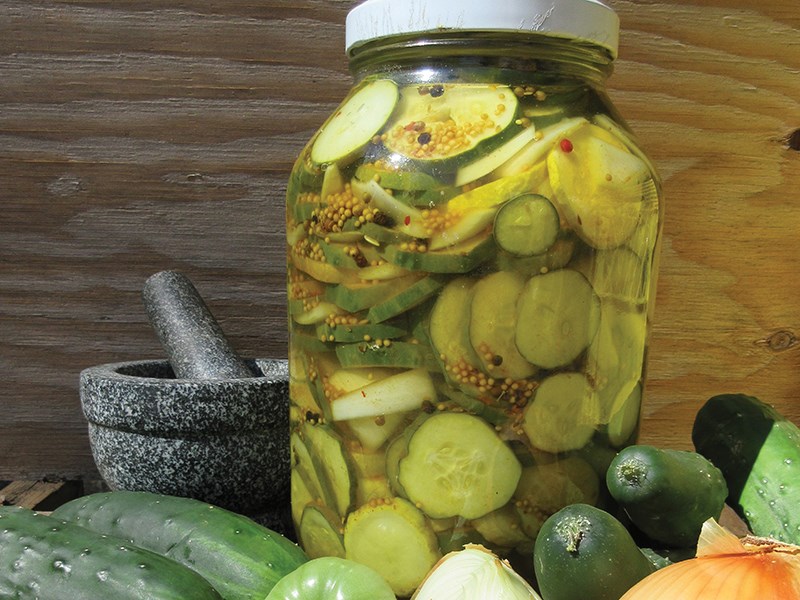A few nights ago, making pickles kept me up way too late. A gigantic pile of cucumbers are waiting on the counter for another batch and more apples than I want to think about need saucing.
The end of summer means marathons of preserving to make sure I have something to eat this winter.
With so much food to be preserved at this time of year, sometimes I run out of ideas. I called around to a few neighbours to ask what everyone else was making. My neighbour, Kristi McRae, told me she has pretty much given up regular pickling in favour of lacto-fermenting, using salt.
“For one thing, it’s less work,” said McRae. “The food is raw so the nutrients are preserved a lot better, plus it’s probiotic.”
Other neighbours are making sauerkraut, and dilly beans in brine, as well as the same sort of bread-and-butter pickles I was ladling into jars at some ungodly late hour that night.
I wondered what other sort of preserves folks made around here, so I went to the Lund Barnacle archive to see what could be found. An article by June Huber in the summer 1989 issue mentions catching salmon and cod in the Lund harbour in the 1920s and salting them in a crock for winter.
Huber also wrote in the fall issue that same year about everyone around Lund being busy canning applesauce, pears and wild berries such as blackberries and huckleberries. From her tone, it was obvious Huber took it for granted that everyone reading would know what she meant.
That made me wonder how many of us out here are still doing this. Rural living has changed in the last few decades. Everything from the price of land to the daily cost of living has gone up. Smaller operators in logging, fishing, farming and other rural occupations have been pushed out by global forces that benefit gigantic corporations, so the available paying work is more precarious and concentrated in cities and towns.
Working in town means less time to grow a garden and preserve your harvest for the winter, so more and more country people depend on the grocery store and a job in town to put food on their table.
Food security is a hot topic these days, but much of the time it is framed in terms of where and how people buy their food. It seems forgotten that the treadmill of working to make money to buy food because you do not have time to grow it yourself is another kind of poverty.
A lot of people think what rural areas need is more jobs. I think we would be a lot better off focusing on how to have more time to make pickles.



